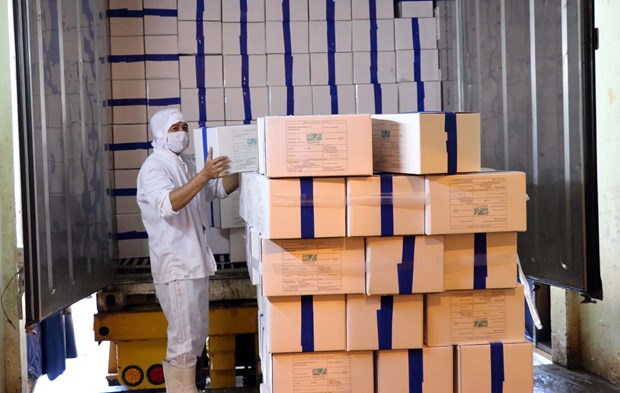Many agricultural products will be exported to Europe under The EU-Việt Nam Free Trade Agreement in the next few days, according to the Ministry of Agriculture and Rural Development.
Following the export of the first batch of frozen shrimp to several countries on September 11, the next consignment comprising dragon fruit, coffee, coconut, grapefruit, and passion fruit would be shipped on September 16-17, it said.
The EVFTA will see the EU remove tariffs on 86.5 per cent of Việt Nam’s seafood exports in the next three years, 90.3 per cent in the next five years, and completely in seven years.
Taking advantage of these preferential tariffs, Vietnamese exporters have increased seafood shipments by around 10 per cent since the start of August.
The EU is the biggest market for Vietnamese coffee, accounting for 38 per cent of the total exports. The average value of exports to the bloc has been US$1.2-1.4 billion a year for the past five years.
Exports to the market is set to rise further when the EU eliminates tariffs on all unroasted and roasted coffee products and processed coffee, which are now 7-11 per cent and 9-12 per cent.
Opportunities to export fresh fruits produced in a closed chain for experience companies such as Đồng Giao, Nafoods and Vina T&T are huge.
The EU is a highly demanding market in terms of compliance with safety standards. European consumers value high-quality products with special characteristics such as organic, fair trade, and geographical indications, experts said.
They added that Việt Nam’s agricultural sector would be one of the biggest winners from the EVFTA as a reduction in tariffs would increase demand and boost exports to Europe’s giant, high-spending market.
Võ Tân Thành, vice chairman of the Việt Nam Chamber of Commerce and Industry, said to take full advantage of the trade deal, farmers should shift from traditional to sustainable cultivation.
Enterprises should increase processing levels and comply with regulations related to technical barriers and food safety and hygiene included in free trade agreements in general but especially the EVFTA.
The Government should also improve food safety management, and solicit more investment in agriculture, especially post-harvest processing, he added.
